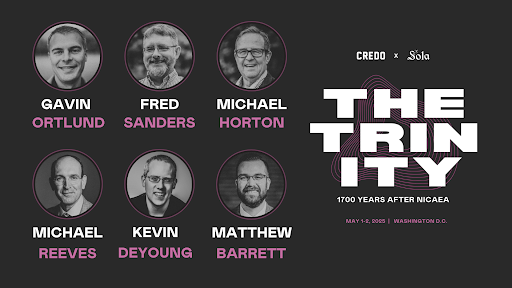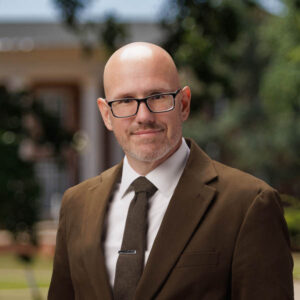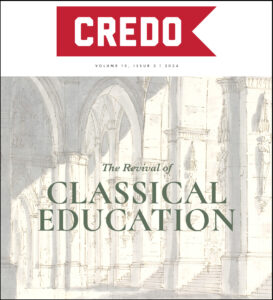In 1524 Martin Luther wrote a treatise on education titled To The Councilmen of All Cities in Germany, in which he laid out some principles of Christian education. Reflecting on how the ancient Greek methods of education resulted in people of “wondrous ability,” he added a personal note, lamenting his own, more limited education. He wrote, “How I regret now that I did not read more poets and historians, and that no one taught me them!” He goes on to complain that, instead of history and poetry, he was forced to read “that devil’s dung, the philosophers and sophists,” by which he means, no doubt, late-medieval scholastic philosophy. It is important to note that Luther laments not a lack of rigor in his education but rather a lack of pleasure. Earlier in the same paragraph he declares, “By the grace of God it is now possible for children to study with pleasure and in play languages, or other arts, or history.” Luther’s regret that poetry did not form an essential part of his own education is part of his insistence that a sense of wonder should be part of a young person’s schooling. Luther points us to poetry’s proper role in a classical education.
It is fairly easy to see a place for epic poetry in a classical Christian curriculum, since the great epics of the Western tradition so effectively call the student into contemplation of virtue. The Iliad draws us into meditation on courage, loyalty, and the fact of our own mortality. The Aeneid makes duty beautiful. The Divine Comedy encourages us to aim our whole being at God as the highest good. The great epics offer laboratories of the virtues, giving students opportunities to discuss the qualities that make human beings admirable or blame worthy.
But what about lyric poetry? If Homer, Virgil, and Dante can help to incline the young mind to virtue, might it not be counter-productive to introduce alongside of them writers like Catullus, Byron, and Whitman? One finds, after all, few models for virtue among the lyric poets. But lyric poetry offers us more than moral instruction; it offers us a nobler, more refined form of pleasure than those offered by our lower instincts. The education that includes the great tradition of lyric poetry from ancient Greece to contemporary America forms the student to take pleasure in exquisite expression and accomplished art. Like music and fine painting good poetry is a civilizing element in our lives and that is why it is crucial in a Christian education.
To banish from education the lyric tradition—like the abandonment of music, drama, and art—is an abandonment of the high calling given to us in Philippians 4:8. We are told to “think about” not only “whatever is true, whatever is honorable, whatever is just, whatever is pure,” but also “whatever is lovely” (ESV). That scripture calls us to meditate on truth is obvious, but many Christians today find less obvious the Bible’s injunction to think about beauty. Yet, it has been obvious to Christians of the past that beauty is a civilizing force and thus a crucial component of any iteration of Christendom. This is the view that gave us not only the great cathedrals of the middle ages but also Bach and Paradise Lost after the Reformation. Beauty civilizes us because it points beyond immediate concerns and gratifications. The habit of honoring beauty inspires us to protect, preserve, and serve something greater than ourselves. Truth, Beauty, and Goodness are, in the tradition of Christian thought, all taken to be “transcendental signifiers,” meaning that they point us toward God. They alert the lost that there is something more than the merely material world, and they help orient the believer ever more toward our God who is the source of all that is true, good, and beautiful. Truth is indispensable in a Christian civilization, but beauty and goodness often reach us first in a more elemental and fundamental way. Truth inspires the noble soul, but beauty inspires the soul toward nobility. Luther laments not a lack of rigor in his education but rather a lack of pleasure. Click To Tweet
For poetry to be a refining force in Christendom it must, therefore, be both good and beautiful. This requirement, frankly, weeds out much contemporary verse. There are a lot of wonderful exceptions, but the majority of verse written today seems to eschew beauty and defy goodness. There are still, however, plenty of contemporary poems for the discriminating teacher to offer his or her students, and there is, of course, a great tradition of lyric poetry from the ancient world to today ready to be incorporated into the classical curriculum. By adhering to the basic canon of European and American poets universally acknowledged until the end of the twentieth century, a teacher can generally avoid anything crude or artless. A good guideline is to seek the traditional pleasures of rhyme and rhythm along with refined sentiment.
Truth inspires the noble soul, but beauty inspires the soul toward nobility. Click To TweetThis work of weaving poetry into the curriculum is important because the refinement of emotions does indeed have deep moral implications. Like good music, good poetry is an inspiration to more than rationalistic, empirical, or utilitarian sentiments. Poetry, along with the other fine arts, teaches us to love something more than the immediate gratification of our lowest urges and to value more than our limited reason can explain, and it is thus an aid to religion, patriotism, and family fidelity. This is why poetry has a place in the liberal arts education that John Henry Newman described as shaping “gentlemen” and why poetry is indispensable for forming that increasingly rare sort of human being whom C.S. Lewis described as “men with chests.” To love only money, to care only for the practical, is to live with a thin, anemic heart. To love one’s wife, to love one’s country, and above all to love the Lord God requires a heart thick enough to occupy a chest, and good poetry is a great thickener of the heart.
Moreover, lyric poetry joins with epic poetry, history, the novel, philosophy, and the Bible itself in showing to us the true contours and terrain of human life. Knowing what to expect in a human life will not shield us from the suffering that is inherent in the human condition in a fallen world, but it will protect us from the folly of thinking we have been unfairly singled out or the error of thinking that the right kind of planning or technology can somehow save us from the conditions that have always governed human life. Lyric poetry at its best is distilled and concentrated human experience, which is perhaps why the Holy Spirit chose to speak through lyric poems in the Psalms, that portion of scripture before the incarnation that makes it most clear to us that God is with us in our suffering and in our joys. Knowing realistically what to expect from life can be a great aid to Christian wisdom and a good lyric poem remembered in a time of suffering can be a great consolation.
Poetry, by encouraging us to love beauty, aids us in loving God. Click To TweetI will be forever grateful to the middle school English teacher who required me to memorize hundreds of lines of lyric poetry, things like Frost’s “The Road not Taken,” Poe’s “Annabel Lee,” and Stevenson’s “Requiem.” How glad I am that I have read the poets and that someone taught them to me. These poems have been good company throughout my life. They have offered consolation and a higher form of pleasure. Though lyric poems tend to be personal in subject, they point us beyond ourselves by gesturing through the particular toward universal experience. They tune our hearts for something better than the life of a mere animal. Poetry, by encouraging us to love beauty, aids us in loving God.
Photo Credit: Filiz Yıldız



